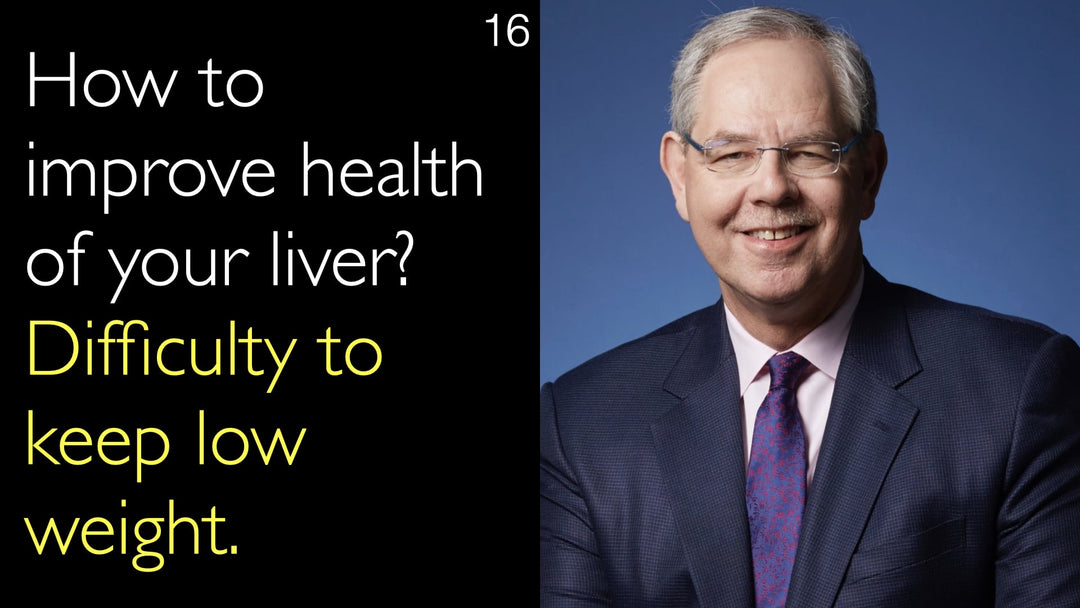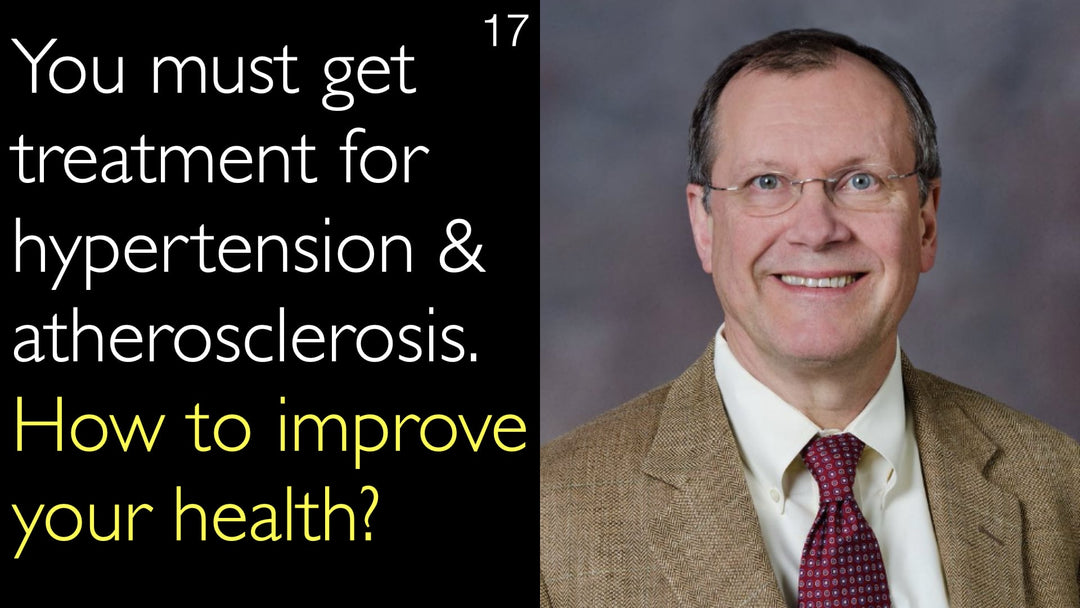Leading expert in drug adverse effects analysis, Dr. Stephen Evans, MD, explains how clinical trials often fail patients. He identifies key flaws like small sample sizes and short-term focus. Dr. Evans advocates for regulatory reform to make randomized trials simpler and more common. He emphasizes the need for public funding to ensure unbiased, powerful results that truly compare treatments.
Improving Clinical Trial Design for Better Patient Outcomes
Jump To Section
- Common Clinical Trial Problems
- The Issue of Small Trial Size
- Funding and Bias in Trials
- Regulatory Barriers to Randomization
- The Need for Comparative Treatment Trials
- Full Transcript
Common Clinical Trial Problems
Dr. Stephen Evans, MD, highlights several critical flaws in modern clinical trial design. A major problem is the failure to analyze results on the most important timescale. He uses surgery as an example, noting that focusing only on short-term outcomes like the first three days would misleadingly suggest all surgery is dangerous due to operative mortality risks.
Many trials do not assess long-term benefits or potential harms that emerge over time. This short-sighted approach can obscure a treatment's true value and safety profile. Dr. Evans also points to selective reporting and selective analysis as pervasive issues that distort the balance between benefits and harms.
The Issue of Small Trial Size
The most common problem, according to Dr. Stephen Evans, MD, is that clinical trials are often too small. Underpowered trials frequently fail to detect evidence of benefit where it exists. They are equally likely to miss evidence of harm, leaving results inconclusive and of limited use.
This issue of small sample size affects trials for drugs, vaccines, surgery, and all treatment types. Dr. Stephen Evans, MD, explains that these inadequate trials leave medical decision-making in a state of uncertainty, ultimately failing both physicians and patients who need clear data.
Funding and Bias in Trials
Dr. Stephen Evans, MD, discusses the significant influence of funding sources on clinical trials. When private industry pays for all clinical research, there is inherent pressure to produce commercially favorable results. This reality can conflict with the goal of generating unbiased evidence that truly benefits patients.
Dr. Evans suggests a need to rethink how medical practice conducts and funds research. He proposes shared payment models between private and public entities to reduce commercial bias. This shift could help ensure trials are designed to answer clinically important questions rather than market-driven ones.
Regulatory Barriers to Randomization
During his discussion with Dr. Anton Titov, MD, Dr. Evans calls current clinical trial regulations a "scandal." He notes the paradox that doctors can freely prescribe unproven treatments like hydroxychloroquine or remdesivir with no oversight. However, the moment they want to randomize patients to properly study these treatments, extensive regulatory barriers appear.
Dr. Stephen Evans, MD, argues this system is unethical because it allows uncontrolled treatment without generating valid data. He advocates for restructuring regulations, particularly during pandemics, to make randomization much easier. This would allow the collective experience of treating millions of patients to contribute meaningfully to medical knowledge.
The Need for Comparative Treatment Trials
Dr. Stephen Evans, MD, emphasizes a critical gap in current clinical research: the lack of comparative efficacy trials. While pharmaceutical companies conduct technically excellent trials, they often design them to show their product in the best possible light. There are far too few trials directly comparing two different active treatments against each other.
This deficiency leaves physicians uncertain about which treatment is truly most effective for their patients. Dr. Stephen Evans, MD, calls for more publicly funded trials that answer these practical comparative questions. He also stresses the need to train more researchers to conduct simpler, less complicated trials that can be widely implemented.
Full Transcript
Dr. Stephen Evans, MD: Half of the clinical trial results are never published, as we have just discussed. Analysis of published data can be bent to the will of those conducting it.
I did a comprehensive analysis of clinical trial problems, including selective reporting of the results. But what are overall the most common problems in clinical results, in addition to selective reporting?
The most common problems are where analysis itself has failed to look at the most important time scale. If we were to look at trials of surgery and only look at the first three days, then all surgery would stop. We know that there is operative mortality in some operations. There are rather higher rates of mortality around the time of some surgery than in others.
But in virtually all surgery, there is a risk of death. What you are looking for is a long-term benefit. A lot of trials are not looking at the long term to see whether there is really long-term benefit, and maybe failing to see the harms that occur in the longer term. So that is a key problem in trials.
There remains a problem, obviously, of selective reporting. There can be a problem in selective analysis—the way that people do their analysis. Sometimes they do a really good and clever analysis to find benefits, and they do a crude analysis, one that is less likely to find evidence of harm. The balance between benefits and harms is often very bad.
The most common problem, in the end, I think, is that the trials are too small. They are failing to find evidence of benefit where there is some, and they're failing to find evidence of harm where there is some. Their results are just in the middle because they've been too small. That is a problem with drugs, with vaccines, with surgery, with all kinds of treatments.
Dr. Anton Titov, MD: Do you think then, as a way to mitigate that problem of small trials—because running clinical trials is very, very expensive—we need to rethink the structure of how medical practice is conducted and perhaps how the private and public payments for the clinical trials are shared? It becomes clear that if the private industry pays for all clinical trials, it really wants to see certain commercial results. That's the reality of the world, and people might not necessarily benefit. How do you think the infrastructure of clinical practice overall and participation in trials should change in order for clinical trials to become more powerful?
Dr. Stephen Evans, MD: I think that the governance around clinical trials needs to be such that they are made much easier to do. I think that it is a scandal that in this pandemic, it has been entirely possible for a doctor to give, say, hydroxychloroquine or remdesivir to individual patients with no checks whatsoever—none at all. They can just go ahead and do it.
But as soon as they want to randomize, then all sorts of regulations come into play. I think that it is unethical to go on treating patients where you do not know that there is benefit and failing to randomize in these circumstances. But I understand why that is.
The ethics committee and the regulations around running trials have made that difficult. I think in a pandemic, we need to restructure the way we think and make sure that we randomize patients to treatment much more readily, without requiring all the checks. Patients and doctors are wanting to do their best, but they ought to ensure that when they do that, they are randomizing patients so that the data that comes out of the experience of treating patients is able to be used in a valid way.
At the moment, they can just go ahead and treat patients. There are millions of patients who have had COVID-19, but only a tiny fraction of them have been put into randomized trials. So I think the regulation needs to be made a lot easier.
We need to train people on how to do simple trials. We need to make them much less complicated. We need to have incentives for people to do that and to do it while publicly funded, or at least not necessarily funded by the pharmaceutical industry.
I think the pharmaceutical industry does very good trials. I think their interpretation is sometimes biased towards their business, but they generally conduct their trials very well. There are a number of criticisms that can be made about their practices in the overall trials they do, and in the trials that are interpreted to show their product in the best possible light.
We don't have nearly enough trials comparing two different treatments, and as a consequence, we are much more uncertain about the comparative efficacy of medicines than we should be.







